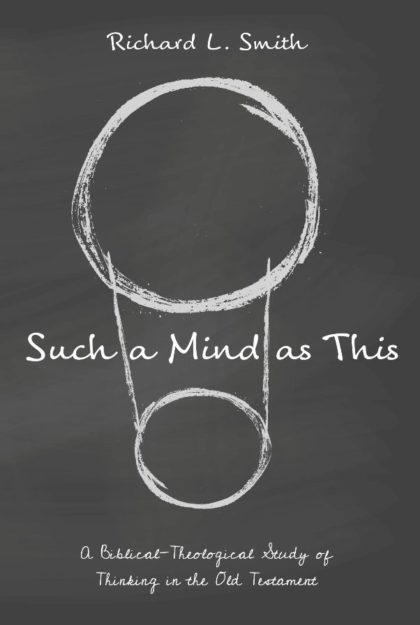
We are delighted to share this guest post from Richard L. Smith, a Senior Advisor of the Society of Christian Scholars, a partner ministry with ESN. The Society of Christian Scholars equips Christian academics to have a missional and redemptive influence for Christ among their students, colleagues, institutions, and academic disciplines. If you are a scholar working outside the United States, we would especially invite you to join the Society of Christian Scholars.
The Christian Scholar
Christian scholars invest many years of study and thousands of dollars to gain an academic specialty and a viable career. But how many hours and dollars do they invest in acquiring biblical understanding? Paul M. Gould observes, “While experts within their own particular fields of study, Christian professors often possess a Sunday school level of education when it comes to matters theological and philosophical . . . and the result is a patchwork attempt to integrate one’s faith with one’s scholarly work and an inability to fit the pieces of one’s life into God’s larger story.”[1] Furthermore, given the shallow state of biblical instruction in most churches today, sermons probably do not help future thought-leaders to discern the theological fault lines in their disciplines and careers.
For some time, Christian scholars have lamented the degradation of evangelical thinking. Albert Mohler writes, for example, “We are in big trouble . . . . Choose whichever statistic or survey you like, the general pattern is the same. America’s Christians know less and less about the Bible.”[2] David R. Nienhuis notes that most of his seminary students—future Christian leaders—are deeply misinformed about basic Bible doctrines. According to Nienhuis, God functions as “divine butler-therapist” or a “nice, permissive dad with a big wallet.”[3] Students cannot integrate Bible characters and events within the broader Old and New Testament narratives or within the biblical worldview.
Do these authors describe you? Can you integrate Bible characters and events within the biblical worldview? Do you understand how your worldview impacts the search for knowledge? Can you discern the cognitive impact of sin within your specialty―even in your personal knowledge? Perhaps you are brilliant in your chosen field. Perhaps your motives for study are positive. But are you underdeveloped in essential biblical understanding and reasoning?
The Way Forward
God is honored with our minds and his glory is displayed by the acquisition of knowledge and discernment―well beyond what we acquire through higher education. John M. Frame explains that Christians have a God-given “stewardship of the mind and intellect,” adding, “It is remarkable that Christians so readily identify the lordship of Christ in matters of worship, salvation, and ethics, but not in thinking. But . . . God in Scripture over and over demands obedience of his people in matters of wisdom, thinking, knowledge, understanding, and so forth.”[4] Frame describes human knowing as “servant knowledge,” or “a knowledge about God as Lord and a knowledge that is subject to God as Lord.”[5] Human beings (especially Christian intellectuals), therefore, must not categorize anything except in accord with God’s norms. They should not view reality through a sacred-secular lens. They should not assume neutrality or objectivity in a manner that affirms intellectual autonomy. Their thought life is subject to the Lord in every way. Clearly, the better epistemological path is loving God with all our mind and all our knowledge (Deut 6:5; Mark 12:30).
Educated Christian thinkers must actively pursue biblical literacy and fluency. The educated thinker should know enough about the biblical worldview to profitably engage the prescient question posed by Leslie Newbigin, “What would be involved in a missionary encounter between the gospel and this whole way of perceiving, thinking, and living that we call ‘modern Western culture’?”[6] Gould provides several guidelines for the would-be missional thinker, professional, and scholar: “Christian scholars ought to be, among other things, actively engaging the dominant plausibility structures embedded within culture, so that the gospel message can gain a fair hearing. He adds, “We need Christian scholars to engage the underlying presuppositions of every discipline, correcting assumptions where needed and making connections that have hitherto gone unnoticed, to demonstrate the unity and elegance of the Christian worldview within the fragmented academy.”[7] Thus, the reflective Christian should know where to draw the lines of intellectual assimilation. They should discern the difference between the common good and biblical distinctives. They must navigate epistemological and ontological pluralism—and, indeed, even to thrive in this milieu, carrying their solid biblical grounding into the world around them.
How My Book Helps
 I wrote Such a Mind: A Biblical-Theological Study of Thinking in the Old Testament to address these challenges. Readers of Such a Mind as This will learn from their ancient brethren how to love God with their minds. By comprehensively examining Old Testament teaching concerning thinking, my book promotes a spirituality that puts biblical reasoning in its proper place. It explains what God requires intellectually of his vice-regents. It shows that our world is a labyrinth, but that God’s revelation is our reliable guide. It will motivate readers to strive for mental piety, wisdom, and intellectual development, for the glory of God and the fulfillment of our mandate on earth.
I wrote Such a Mind: A Biblical-Theological Study of Thinking in the Old Testament to address these challenges. Readers of Such a Mind as This will learn from their ancient brethren how to love God with their minds. By comprehensively examining Old Testament teaching concerning thinking, my book promotes a spirituality that puts biblical reasoning in its proper place. It explains what God requires intellectually of his vice-regents. It shows that our world is a labyrinth, but that God’s revelation is our reliable guide. It will motivate readers to strive for mental piety, wisdom, and intellectual development, for the glory of God and the fulfillment of our mandate on earth.
Such a Mind as This helps us exercise better stewardship of our minds. It increases our intellectual self-awareness. It fosters discernment and alleviates our biblical ignorance. It teaches us to determine carefully to whom we listen. And it will set us on the path to wisdom. This text affirms a basic truism of the Old Testament epistemology: intellectual holiness yields intellectual wholeness. Such a Mind as This is available on Amazon.
_________________
[1] Gould, The Outrageous Idea of a Missional Professor, International Edition (Eugene, OR: Wipf and Stock, 2019) 7.
[2] Mohler, “The Scandal of Biblical Illiteracy: It’s Our Problem.” https://albert mohler.com/2016/01/20/the-scandal-of-biblical-illiteracy-its-our-problem-4
[3] Nienhuis, David R. “The Problem of Evangelical Biblical Illiteracy” (2010). https:// modernreformation.org/ resource-library/articles/the-problem-of-evangelical- biblical-illiteracy/.
[4] Frame, A History of Western Philosophy and Theology (Phillipsburg, NJ: Presbyterian and Reformed Publishing, 2015), 5.
[5] Frame, The Doctrine of the Knowledge of God (Phillipsburg, NJ: Presbyterian and Reformed, 1987), 40.
[6] Newbiggin, Foolishness of the Greeks: The Gospel and Western Culture (Grand Rapids, MI: William B. Eerdmans Publishing Company, 1986), 1.
[7] Gould, Cultural Encounters 8, no. 1 (2012), 124.
Richard L. Smith received a Masters of Arts in Religion from Westminster Theological Seminary in 1992 and a Ph.D. in Historical Theology in 1996. From 1995 to 2001, he ministered in Prague, Czech Republic, with Global Scholars.
Since 2010, Richard has lived and ministered in Buenos Aires, Argentina. and serves as a Senior Advisor for the Society of Christian Scholars . He manages a website and blog, Cosmovisión BÃblica (Biblical Worldview). You can read his articles at https://independent.academia.edu/RichardSmith203. The web site for Such a Mind as This is https://suchamindasthis.com/.

Leave a Reply